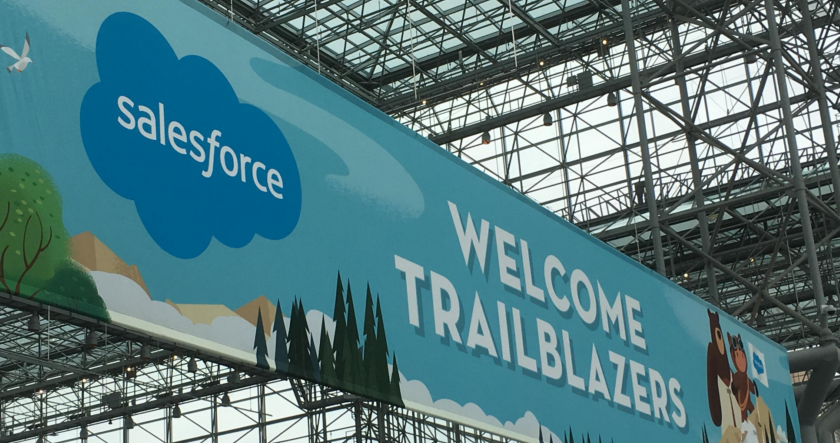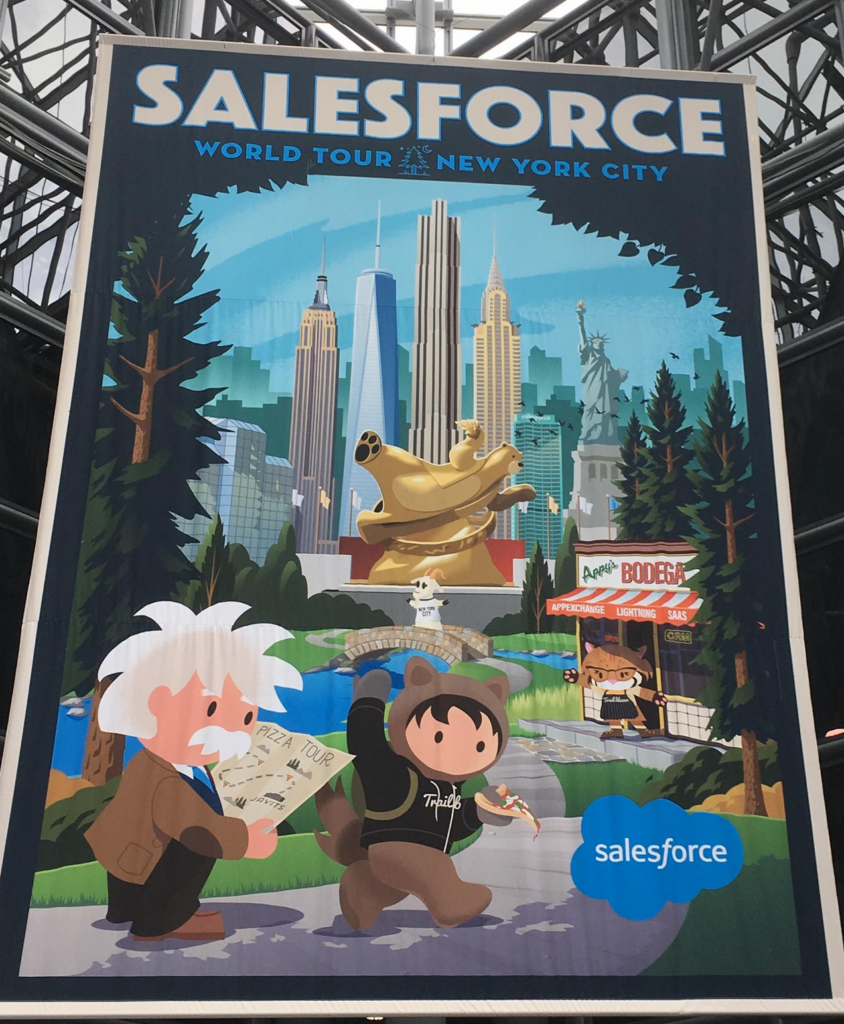Exclusives

Salesforce Exec: Welcome to the ‘Fourth Industrial Revolution’
Story Highlights
NEW YORK — We’re living in a significant era of change in which everyone is connected all the time and devices are becoming increasingly smart thanks to technologies including artificial intelligence (AI), according to Adam Blitzer, Salesforce EVP and GM of Sales Cloud.
“As a product person, what gets me really excited is that there has never been a better time to be in technology, and that is because we’re in the middle of what we call the Fourth Industrial Revolution,” he said May 7 during a keynote at the Salesforce World Tour New York City conference.
“There have been other seismic shifts and revolutions in the past,” he noted, adding: “This started with the steam revolution that led to a new era in transportation and logistics. This was followed by the electrical revolution, which led to a new era of mass production and huge productivity gains in factories.”
But he told attendees: “The revolution that we’ve all been present for is the computing revolution, [which] helped build companies like Salesforce. It helped digitize and it helped change the way we work.”
Now, however, he said: “We’re in an entirely new revolution today, and one that we think will be even more profound than the other three. And this is the revolution of connectivity, when everything and everyone is connected. And not only are things connected, but things are becoming smarter. We’re able to provide amazing experience as a result of this connectivity because at the end of each of these connections – at the center of each of these connections – is a customer.”
 Blitzer pointed out that many attendees probably took advantage of that connectivity to get to the event, such as via a ride-sharing app with help from that “supercomputer” in our pockets known as a smartphone.
Blitzer pointed out that many attendees probably took advantage of that connectivity to get to the event, such as via a ride-sharing app with help from that “supercomputer” in our pockets known as a smartphone.
That mobile device also enables him to check in to a Marriott hotel “before I ever get to the hotel,” something that he told attendees is a convenient feature he loved to take advantage of – one that allowed him to “bypass the front desk” and “go right to my room” as soon as he arrived. On top of that, he noted, when he arrived at his room, “I don’t need a key because my phone is a key.”
He added: “The hotel room is connected to me. When I’m in the room, it knows my preferences.” In addition, elevators and escalators have become connected also, which enables companies to know about any safety issues that could be developing, he pointed out, adding those are examples that show, “on the business-to-consumer side and on the business-to-business side, we’re seeing amazing gains as a result of connectivity.”
To help create great connected experiences, Salesforce has “spent the past 20 years building a customer success platform,” he said, pointing out that it launched Salesforce Service Cloud early on “to focus on customer service,” before Salesforce Sales Cloud.
The company also opened its platform to allow users to build their own applications and experiences using the same technology as Salesforce, he noted, adding that connecting all these technologies and applications has become “more important than ever.”
 After all, he said: “Integration is one of the top priorities for most CIOs, and that’s why, last year, we acquired the number one integration platform, MuleSoft.” Salesforce bought that company for $6.5 billion.
After all, he said: “Integration is one of the top priorities for most CIOs, and that’s why, last year, we acquired the number one integration platform, MuleSoft.” Salesforce bought that company for $6.5 billion.
Underscoring the importance of small businesses to Salesforce, he noted that the company’s Salesforce Essentials customer relationship management (CRM) platform gives small companies “all of the power of Salesforce starting at $25 per user, per month.”
In a video, European bank BBVA representatives explained how helpful Salesforce Essentials has been for it.
Blitzer went on to explain the importance of trust, noting it’s one of Salesforce’s “core values,” along with customer success, innovation and equality.
Although Salesforce Einstein, the company’s AI platform, has become a growing part of the company’s business, he conceded that “technology is becoming incredibly complicated” now and pointed to AI as one major factor.
AI, social networking and their applications are “being used in ways we couldn’t have imagined 10 years ago, or even five years ago,” he said, adding: “Technology is not inherently good. It’s not inherently bad. It’s all about how humans make use of it. And that’s why we’ve established the Office of Ethical and Humane Use – to make sure that our technologies are used in accordance with our core values.”
Salesforce, meanwhile, announced the creation of Einstein Analytics for Financial Services, a customizable analytics solution that it said “provides AI-augmented business intelligence for wealth advisors, retail bankers and managers.”
The company also pointed out that it was named the top CRM provider by International Data Corporation (IDC) for the sixth straight year while growing its overall market share position and increasing its revenue more than any rival CRM vendor.









